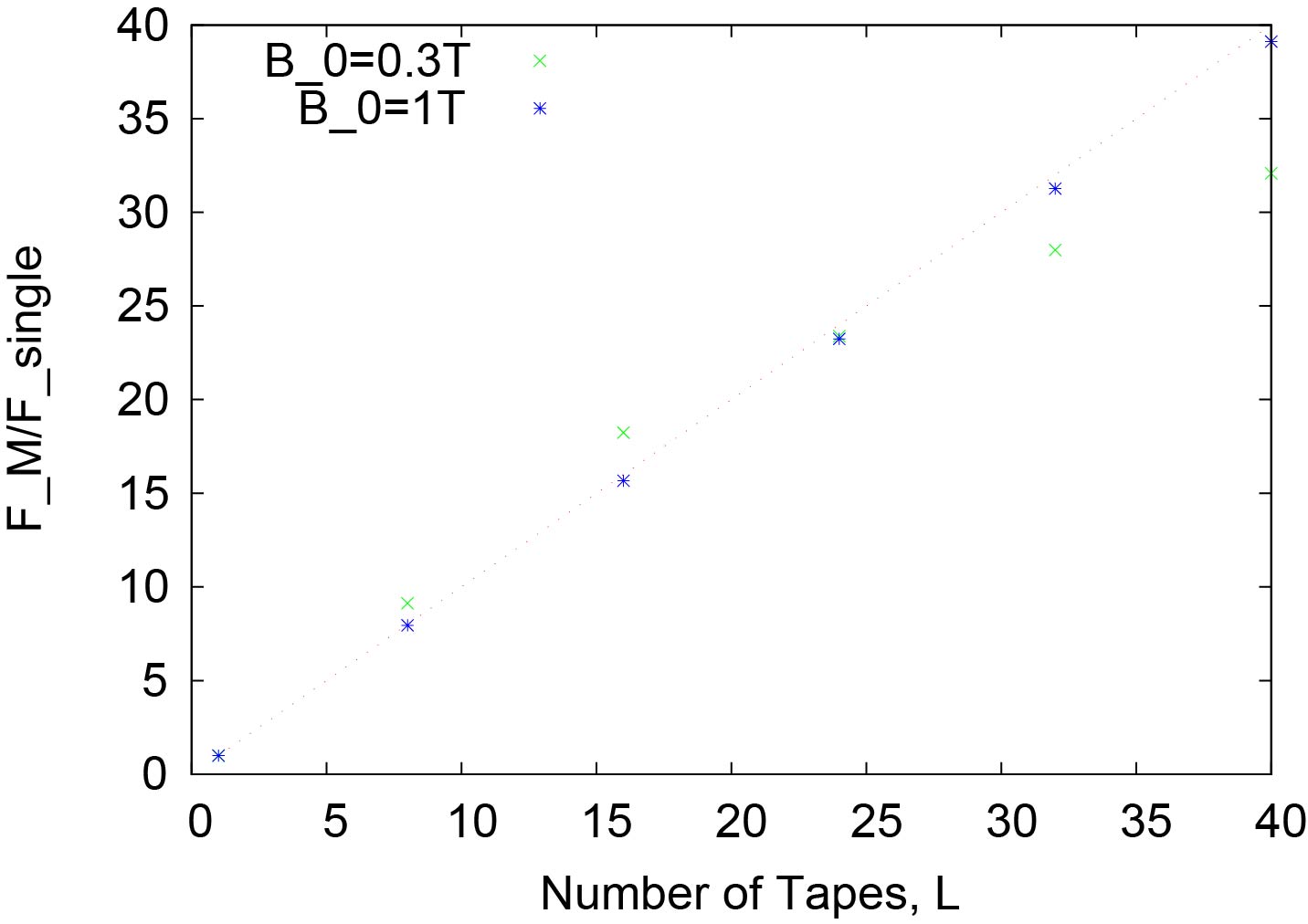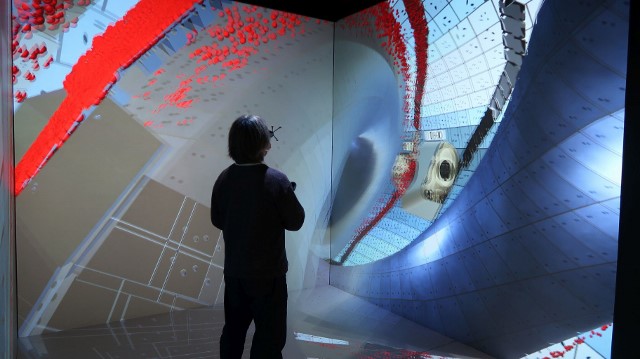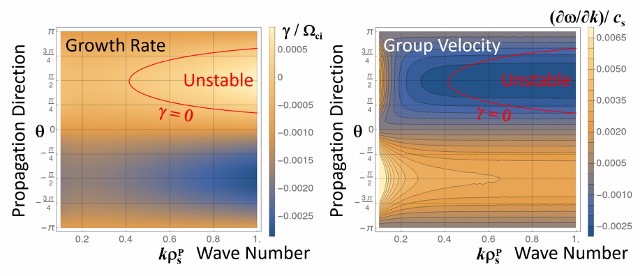New Topics
News
<< see all the news >>
Published Paper
"Numerical Investigation on Applicability of jC-Measurement Method
to Multiple High-Temperature Superconducting Tape"
T. Yamaguchi, H. Ohtani, S. Satake, N. Yanagi, and Y. Onodera,
Plasma and Fusion Research Vol. 17, 2405035 (2022)

We develop a numerical code based on the edge-based finite element method
to investigate the applicability of the permanent magnet method to vertically-stacked
multiple high-temperature superconducting (HTS) tapes. The permanent magnet
method can measure the critical current density in the HTS tape contactlessly
and nondestructively. By using our numerical code, it is clear that the
permanent magnet method can be applied to measurement of the critical current
density in the multiple HTS tapes although there is an upper limit of the
number of HTS tapes in which the critical current density can be measured.
In addition, by using stronger magnet, the permanent magnet method can
measure the critical current density when more number of HTS tapes are
stacked. |
"Virtual-reality visualization of loss points of 1 MeV tritons in
the large helical device, LHD"
H. Ohtani, S. Masuzaki, K. Ogawa, and S. Ishiguro,
Journal of Visualization Vol. 25, 281 (2022)

Intersection points of 1 MeV tritons and the plasma facing wall are
visualized in the vacuum vessel of Large Helical Device (LHD) with the
divertor plates by the virtual-reality (VR) system. It is possible to
directly observe the strike points distributed on the wall and on the
plates. This visualization helps us to determine where the material
probes should be placed on the plasma facing wall in the real LHD for
experimental analysis of the accumulated tritium on the plasma facing wall.
|
"Linear analysis of cross-field dynamics
with feedback instability
on detached divertor plasmas"
H. Hasegawa, H. Tanaka, and S. Ishiguro,
Nuclear Fusion Vol. 61, 126005 (2021)

The theoretical model of the feedback instability is proposed to explain
the mechanism of the correlation between the detachment and the cross-field
plasma transport. It is shown that the feedback instability on the detached
divertor plasma can be induced in a certain condition in which the volume
recombination frequency is larger than the ion cyclotron frequency in the
recombination region (see the left figure). The feedback instability can
provide the cross-field plasma transport in the boundary layer of magnetic
fusion torus devices (see the right figure). Furthermore, the properties
of the radial transport observed in the NAGDIS-II linear device experiment
are compared with the estimation by the feedback instability model. The
dependence of the feedback instability mode on the total collision frequency
and the recombination coefficient and the density gradient has been also
investigated. |
|
|
|
 NIFS WEB
NIFS WEB NIFS WEB
NIFS WEB